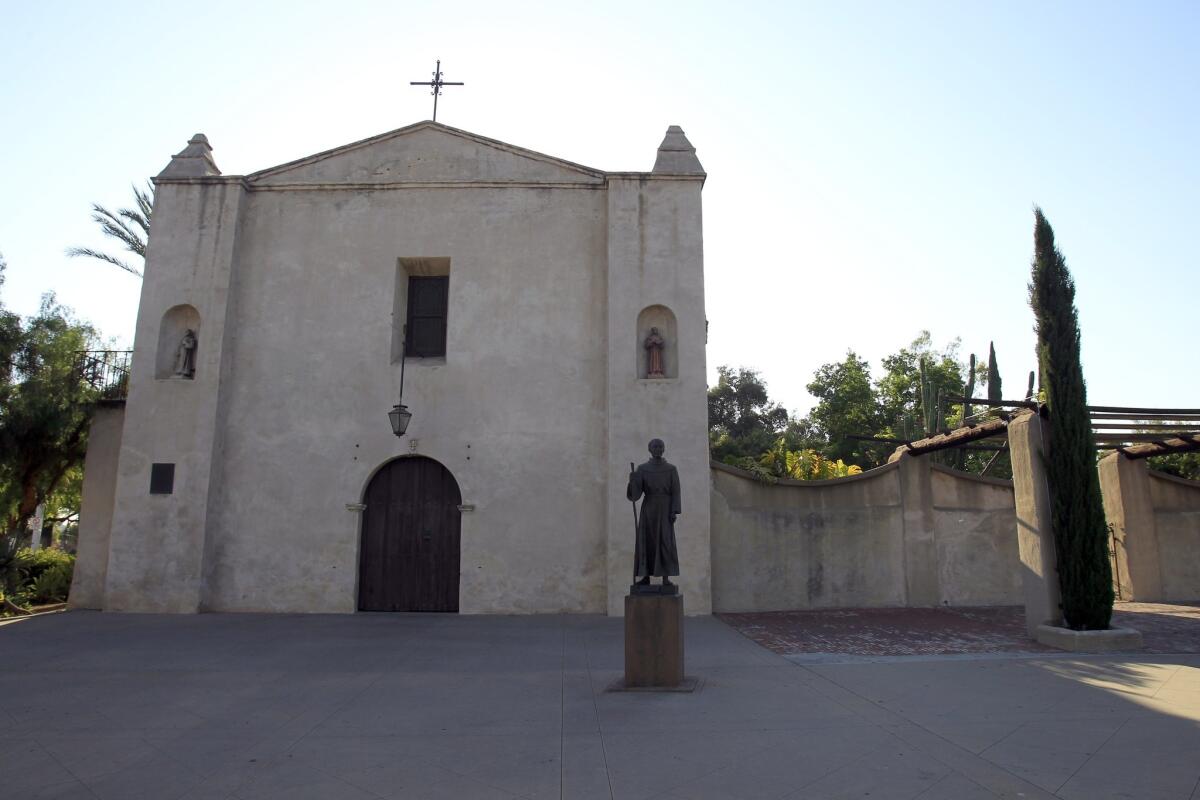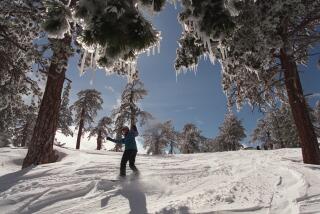California missions spotlight: San Gabriel was one of the largest, wealthiest, most productive missions

San Gabriel Arcángel, San Gabriel
Fourth mission
1771
Explore all of California’s 21 famed missions >>
This was one of the largest, wealthiest, most productive missions. By 1829, the mission had 25,000 head of cattle, 15,000 sheep, perhaps the largest vineyard in Spanish California, and abundant crops of wheat, barley, corn, beans, peas, lentils and garbanzos. The families and soldiers who founded Los Angeles came from here in 1781. In the museum, look for 14 paintings by neophytes illustrating the Stations of the Cross, the only such artworks surviving. Historians say they were painted at the San Fernando Mission and misplaced after secularization, rediscovered and displayed at the 1893 World’s Columbian Exposition in Chicago before arriving at San Gabriel.
Nearby: The Mission Playhouse (www.missionplayhouse.org) was built in 1927 to house the “Mission Play,” a yearly pageant through the ‘30s (which has been revived as recently as 2013) that told the romanticized version of the mission story. Now the playhouse houses productions of all kinds, as diverse as “The Nutcracker” at Christmastime and “Toypurina,” a dramatic collaboration (premiering Oct. 23) with the Gabrieleno-Tongva San Gabriel Band of Mission Indians. Toypurina was a Native American woman who led a rebellion against the San Gabriel mission in 1785.
Info: 428 S. Mission Drive, San Gabriel; (626) 457-3035, www.sangabrielmissionchurch.org. Driving distance from Los Angeles City Hall: 10 miles east.
From the archives:
In 1921, The Times covered celebrations of the San Gabriel Mission’s 150th anniversary.
In 2009, The Times reported on the recovery and reinstallation of a cross stolen years before.
More to Read
Sign up for The Wild
We’ll help you find the best places to hike, bike and run, as well as the perfect silent spots for meditation and yoga.
You may occasionally receive promotional content from the Los Angeles Times.







